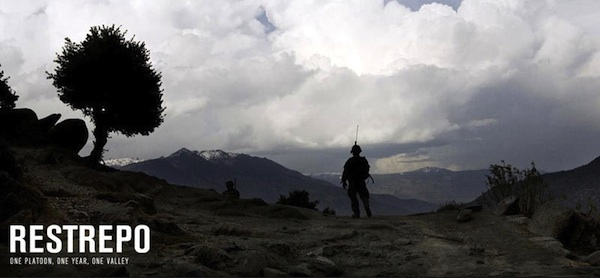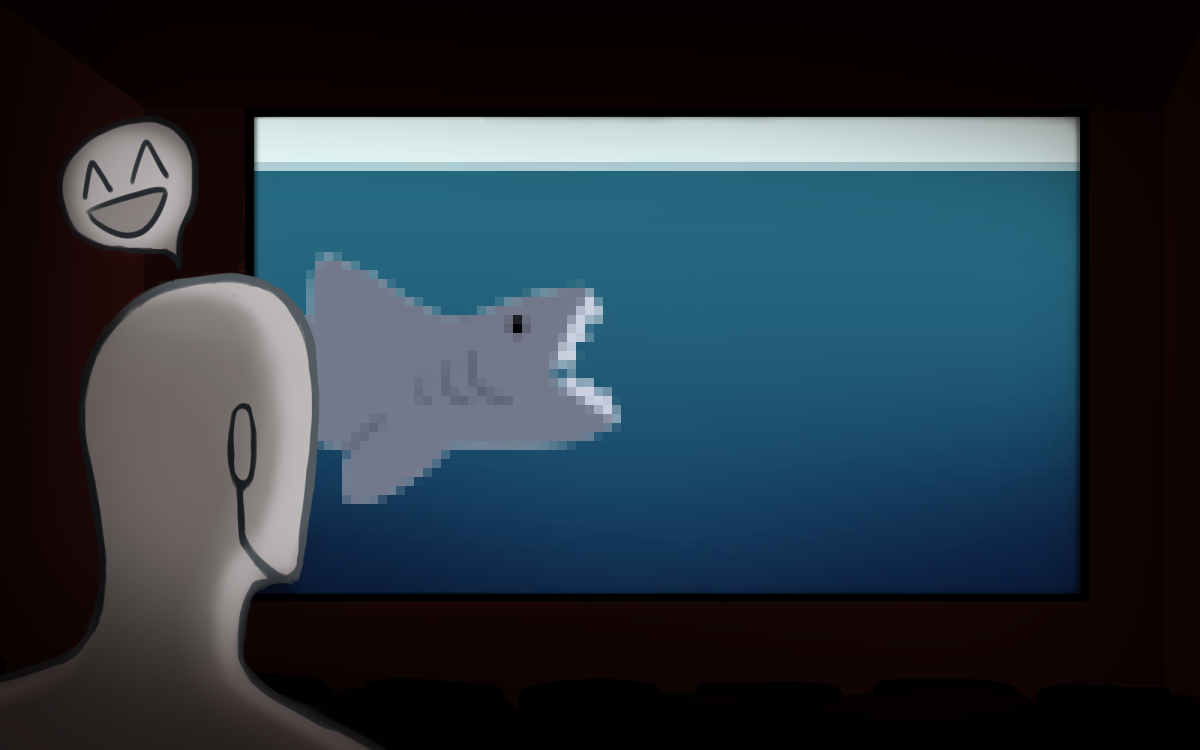
An unbreakable bond forged under the harshest of circumstances, a brotherhood that could only exist in a place as desolate and deadly as Outpost Restrepo, in the Korengal Valley, Afghanistan.
While the preceding line may sound like an overly-dramatic voiceover narration for a film trailer, you can rest assured it’s not.
The daily reality of a small squad of 12 American soldiers assigned to the 2nd Platoon of the 173rd Airborne Brigade Combat Team as they serve a 15-month deployment defending a small outpost is the subject of a new documentary Restrepo co-directed by Tim Hetherington and Sebastian Junger.
Over the course of 10 months, these two documentarians spent every waking moment recording not only the daily lives of these men, but the emotional, psychological, and physical changes that they underwent, as well. The changes are quite surprising and the lasting effect on these men’s psyches is something that can only be witnessed by actually viewing the film.
And while the average person may be no stranger to witnessing the horrors of war on the big screen, what helps to set this film apart from all others is the incredibly uncensored access into these soldier’s lives that the audience is given within the film.
As a viewer you are sent on a traumatic and extremely eye-opening “90-minute deployment” with this small band of soldiers as they fight tooth and nail to defend a small rocky outcropping in the middle of nowhere.
The film covers the gamete, containing everything from adrenaline-inducing firefights between American and Taliban forces to highly emotional, and quite frankly tragic, outbursts from soldiers as they witness firsthand the true cost of war as their best friends die a slow and painful death in front of their eyes. No film, in all my experience, gives such an intimate yet broad picture of war from such a uniquely “human perspective.”
The directors go to incredible lengths, risking life and limb many times in the process, to show the audience that what they are witnessing is real and that this is the harsh reality for thousands of young Americans serving overseas every day. Hetherington commented that “we’re fighting a guerrilla war to keep reality on the agenda,” and his film more than accomplishes this point.
Rather than focusing on the causes and reasons behind the war, “Restrepo” simply sets out to show the evolution and effects of gruesome and repeated violence during war on the minds of the soldiers fighting in it. The changes in the mental makeup of these men are marked to say the least, and, in many cases, quite shocking and disturbing as well.
To watch a young man no older than age 18 or 19 transform over a period of 10 months from a semi-peace-loving hippie, whose parents wouldn’t even allow him to own a squirt gun, to a man that will kill an enemy without a moment’s hesitation is quite honestly tragic, but important to bear witness to nonetheless.
The film primarily focuses on this specific group of soldiers, but it also does a more than adequate job of showing the civilian cost of the conflict as well. The viewer of “Restrepo” is exposed to the other side of the conflict, with multiple civilian casualties shown during the film.
At one point, during a mission designed to run the Taliban out of a small area of in a remote valley, someone accidentally orders a bombing run launched on what turns out to be a home of innocent Afghans. Innocent adults and children are caught in the fray and end up being killed in the process. The film, however, steers away from showing any extremely graphic depictions of death, maintaining a distinct sense of tact and sensitivity, while managing to effectively convey its point.
The cinematography in the film is just as harshly beautiful as the subject matter itself. The first-person feel of many of the shots is extremely personal and allows the viewer to connect very easily with the soldier onscreen, and in doing so, makes the audience feel as if it, too, has been sent on a 15-month deployment to this desolate place in mountains of Afghanistan.
A final, but rather important point that I’d like to address about the film is the distinct sense of neutrality that Restrepo assumes. Junger and Hetherington set out to show the war for what it was for this single group of men, without inflicting the film with their own personal agendas or views. In other words, Restrepo can best be described as war without the politics, commentary, or drama.
Restrepo encapsulates the most basic of human instincts and leaves it to the various onlookers to come to their own conclusions.
Rating: 9/10. See it for yourself.
[To read about and watch a personal interview Ben Gill conducted with director Tim Hetherington, click on “Restrepo Director Tim Hetherinton Expounds on War and Life.”]

















